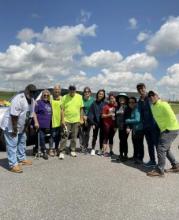“And it shall come to pass afterward that I will pour out My Spirit on all flesh; Your sons and your daughters shall prophesy, your old men shall dream dreams, your young men shall see visions” (Joel 2:28, NKJV).
We need to understand that near the close of earth’s harvest, there will be a special outpouring of spiritual grace to prepare each and every one of us for the coming of Christ.










